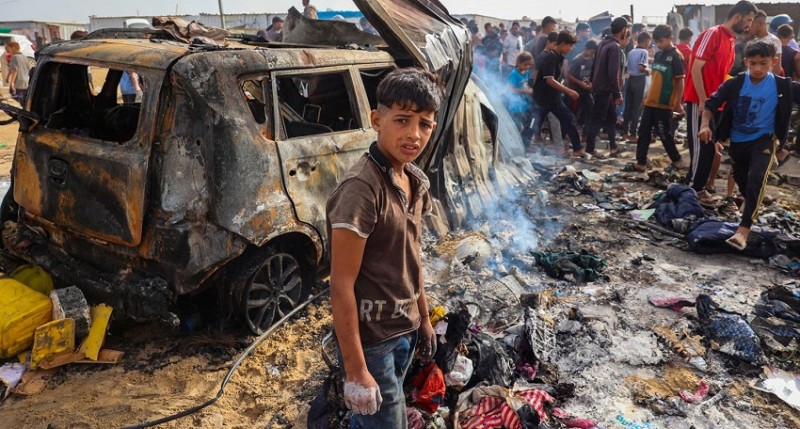
Tel Aviv: An Israeli official announced on Wednesday that the conflict in Gaza might continue through the end of the year, challenging hopes for a swift end to the fighting following the military operation against Hamas in Rafah.
Tzachi Hanegbi, Israel's national security adviser, explained that 2024 has been labeled a "year of combat" by Israel's war cabinet. "We are now in the fifth month of 2024, which means we anticipate another seven months of fighting to deepen our achievements and meet our goal of dismantling the military and governmental capabilities of Hamas and Islamic Jihad," Hanegbi said.
These comments were made as Israeli tanks advanced into central Rafah for the first time since the operation began, continuing their push into the southern Gaza city despite increasing international calls to halt the offensive.
Initially, the Israeli government suggested that entering Rafah would mark the final phase of its war against Hamas, which began attacks on Israel in October, resulting in about 1,200 deaths and the kidnapping of around 250 people. In response, Israel launched a major offensive in Gaza, leading to the deaths of over 36,000 people, according to Palestinian officials.
Although there were earlier discussions of a ceasefire-for-hostages deal with Hamas, the more hardline members of Israel's war cabinet pushed to continue the Rafah offensive, focusing on defeating the group over the release of hostages believed to be held in Gaza.
Hanegbi's remarks indicate that the Rafah operation might not signal the end of the conflict, casting doubt on Prime Minister Benjamin Netanyahu's plans to de-escalate the campaign and establish post-war governance in Gaza.
While Netanyahu has described Rafah as Hamas' "last stronghold," Israeli forces have been active in northern areas where they previously claimed to have dismantled militant command centers.
During an interview on Israeli radio station Reshet Bet, Hanegbi reiterated, "It was honestly stated in the first days of presenting the plans to the cabinet that the war would be long." He urged patience and resilience, cautioning against setting deadlines.
Meanwhile, Israel continues its military actions despite rising global outrage, especially following an Israeli airstrike on Sunday that killed at least 45 people and injured 200 others in Rafah at a camp for displaced people, which had been considered a safe zone.
Footage from the Tal al-Sultan camp showed horrifying scenes, with charred bodies pulled from the debris and a man holding the headless body of a child amid flames.
Despite international calls for a change in approach, U.S. President Joe Biden has maintained his support for Israel, stating that the Rafah strike had not yet crossed a threshold that would alter American backing.
This strike came shortly after the International Court of Justice (ICJ) ordered Israel to "immediately halt" its offensive in Rafah or any actions worsening the conditions for Palestinians in Gaza. The ICJ described the humanitarian situation in Rafah as "disastrous," warning of further deterioration if Israel's operation continues.